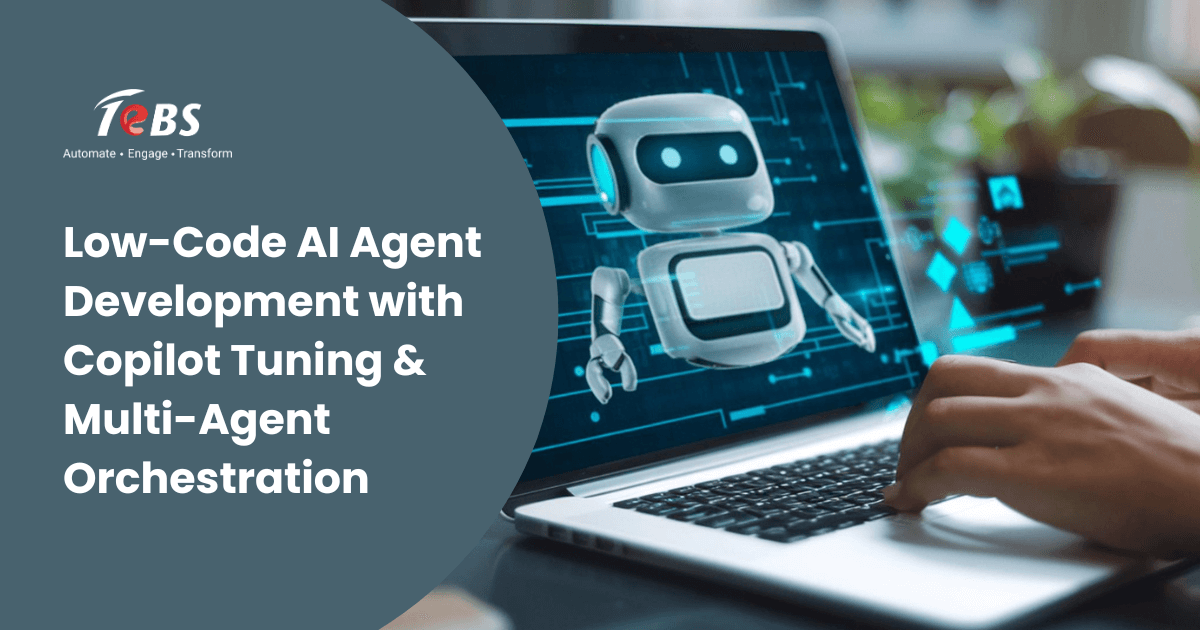Summary
The success of AI solutions depends less on algorithms and more on the strength of your data strategy. A robust approach focuses on governance, quality, security, integration, scalability, and alignment with business goals. Without it, AI initiatives risk bias, inefficiency, and poor ROI. With the right strategy, organizations can unlock reliable, scalable, and business-aligned AI solutions that drive measurable value.Introduction: Why AI success starts with the right data strategy
Artificial Intelligence (AI) holds immense potential to transform businesses, but its success hinges on more than just algorithms and models. The foundation of any impactful AI deployment lies in a well-defined data strategy. Without structured, high-quality, and accessible data, AI initiatives often struggle to deliver meaningful insights or achieve scalability. A carefully designed data strategy ensures that organizations can collect, manage, secure, and utilize data effectively to fuel AI services for enterprise transformation and decision-making.The Role of Data in AI Deployment
Data serves as the lifeblood of AI solutions. Every AI application—whether predictive analytics, recommendation engines, natural language processing, or computer vision—relies on vast amounts of structured and unstructured data to train and refine models. Key roles of data in AI deployment include:- Training AI Models: Large datasets help AI systems learn patterns, relationships, and anomalies that form the basis for accurate predictions and automation.
- Ensuring Reliability: High-quality data reduces bias, improves accuracy, and enhances trust in AI outputs.
- Supporting Real-Time Decision-Making: Continuous streams of clean, accessible data enable AI systems to provide timely insights for operations, customer engagement, and strategic planning.
- Driving Scalability: A robust data foundation ensures AI solutions can evolve as business needs grow, supporting larger datasets and more complex use cases.
Simply put, data is not just an input—it is the critical enabler of AI’s success.
Key Elements of a Robust Data Strategy
Building a strong data strategy requires clarity, governance, and alignment with business goals. According to Gartner’s Key Success Factors in Data and Analytics Strategy, organizations with enterprise-wide frameworks are more likely to succeed with AI. The following elements form the backbone of a successful approach:1. Data Governance
Clear policies and frameworks are essential to manage data ownership, security, privacy, and compliance. Governance ensures that AI initiatives operate within ethical and regulatory boundaries.2. Data Quality Management
AI systems are only as good as the data they consume. Processes must be in place to cleanse, validate, and enrich data, removing errors, inconsistencies, and duplicates that can skew outcomes.3. Data Integration and Accessibility
Data often resides in silos across multiple systems. A unified integration strategy allows seamless data flow from various sources, making information accessible to AI models in real time.4. Scalability and Infrastructure
Cloud-based platforms and scalable storage solutions are critical to handle growing volumes of data. The infrastructure should support both structured (databases, ERP) and unstructured (text, images, video) data. Explore how AI-driven data engineering solutions support structured and unstructured data handling.5. Metadata and Documentation
Well-documented metadata ensures transparency, enabling data scientists and analysts to understand context, lineage, and usage. This improves interpretability and reduces risks of misapplication.6. Security and Privacy Measures
Protecting sensitive data is non-negotiable. Encryption, access controls, and compliance with regulations (such as GDPR or HIPAA) are vital for building trust with customers and stakeholders.7. Alignment with Business Objectives
A data strategy should not exist in isolation. It must directly support business goals—whether enhancing customer experience, improving operational efficiency, or enabling new revenue streams.
When these elements are addressed holistically, organizations lay the groundwork for AI deployments that are reliable, scalable, and aligned with long-term success.
Challenges in Data Quality, Security, and Accessibility
Even with the best intentions, organizations often encounter obstacles that undermine AI initiatives.1. Data Quality Issues
- Inconsistency: Different departments may use varied formats or definitions, leading to mismatched data.
- Incomplete or Missing Data: Gaps in data sets reduce AI model accuracy.
- Bias and Noise: Poorly curated data can introduce bias, limiting fairness and trustworthiness of AI outputs.
2. Data Security Concerns
- Data Breaches: Sensitive data such as customer information or financial records are prime targets for cyberattacks.
- Compliance Risks: Failure to adhere to regional and industry-specific regulations can lead to penalties and reputational damage.
- Unauthorized Access: Weak access controls expose data to misuse.
3. Accessibility and Integration Challenges
- Data Silos: Isolated data systems hinder cross-functional collaboration and insights.
- Legacy Systems: Outdated infrastructure may not support modern AI requirements.
- Slow Retrieval: Poor data architecture can delay real-time insights, undermining AI’s value.
To overcome these issues, organizations can adopt structured frameworks such as Microsoft’s Cloud Adoption Framework for Migration Planning, which provides step-by-step sequencing for secure and efficient migrations.
Overcoming these challenges requires not only technology investments but also a cultural shift toward data-driven thinking, where every stakeholder values and contributes to data excellence.
Learn more in our dedicated article on AI in Advanced Data Management and how it addresses data silos, compliance, and integration hurdles.
Table: Poor vs Strong Data Strategy
| Aspect | Poor Practice | Best Practice |
| Data Governance | No clear ownership; inconsistent compliance with policies. | Clear governance framework with defined roles, responsibilities, and compliance. |
| Data Quality | Duplicates, errors, and incomplete records go unchecked. | Rigorous validation, cleansing, and enrichment processes ensure reliable data. |
| Data Integration | Fragmented silos prevent unified insights. | Centralized platforms enable seamless integration across all data sources. |
| Accessibility | Restricted to a few teams; lack of real-time access. | Organization-wide access with secure, role-based controls for timely insights. |
| Scalability | Systems struggle with large datasets and unstructured formats. | Cloud-based, scalable infrastructure supports diverse and growing data types. |
| Security | Weak encryption and limited monitoring expose sensitive data. | Strong encryption, multi-factor authentication, and proactive monitoring. |
| Business Alignment | Data initiatives disconnected from business priorities. | Strategy designed to directly support measurable business goals and outcomes. |
| Metadata Management | Little to no documentation of data lineage or context. | Comprehensive metadata ensures transparency, traceability, and interpretability. |
This comparison highlights how a strong data strategy transforms data into a true business asset, driving AI projects toward tangible success.
Conclusion & Call-to-Action
AI has the power to redefine industries, but its effectiveness is determined by the strength of the underlying data strategy. Organizations that prioritize governance, quality, accessibility, and security are better positioned to unlock AI’s full potential. Conversely, those neglecting data foundations risk wasted investments, unreliable outcomes, and missed opportunities.
Building a robust data strategy is not merely an IT initiative—it is a business imperative that demands leadership commitment, cross-functional collaboration, and the right technology partners.
If your organization is ready to harness AI effectively and build a data strategy tailored for long-term success, our team at Total eBiz Solutions (TeBS) can help. With expertise in advanced AI data analytics and BI, we enable organizations to unlock the full potential of their AI initiatives. Reach out to us at [email protected] to explore how we can accelerate your AI journey with secure, scalable, and business-aligned data solutions.
Frequently asked questions
1. Why is a data strategy important for AI deployment?
A clear data strategy ensures that the right data is available, accurate, and aligned with business goals. It enables organizations to collect, manage, and utilize data effectively, providing a solid foundation for AI models to generate meaningful insights and drive value. Without a defined strategy, AI initiatives often face inconsistencies, bias, and scalability issues.
2. What are the key components of a strong data strategy?
A strong data strategy includes well-defined elements such as data governance, quality management, architecture, security, and integration frameworks. It should also outline data ownership, storage policies, accessibility controls, and compliance measures to ensure that AI systems operate efficiently and ethically.
3. How does data quality impact AI outcomes?
Data quality directly affects the performance and accuracy of AI models. High-quality, complete, and unbiased data leads to reliable predictions and actionable insights. Conversely, poor-quality data can introduce errors, reinforce bias, and reduce the effectiveness of AI-driven decision-making.
4. What challenges do organizations face in managing data for AI?
Common challenges include data silos, inconsistent data formats, lack of integration between systems, poor data quality, and insufficient governance frameworks. Many organizations also struggle with ensuring compliance, data privacy, and balancing accessibility with security.
5. How can companies improve data accessibility for AI projects?
Companies can enhance data accessibility by implementing centralized data platforms, cloud-based storage, and standardized APIs that enable seamless data sharing. Adopting data cataloging tools, metadata management, and role-based access controls also ensures that the right teams can access the right data safely and efficiently.
6. What role does governance play in a data strategy?
Governance establishes the policies, standards, and accountability needed to manage data responsibly. It ensures data integrity, compliance with regulations, and ethical AI use. Strong governance frameworks foster trust, consistency, and transparency across the data lifecycle—key factors for successful AI deployment.





